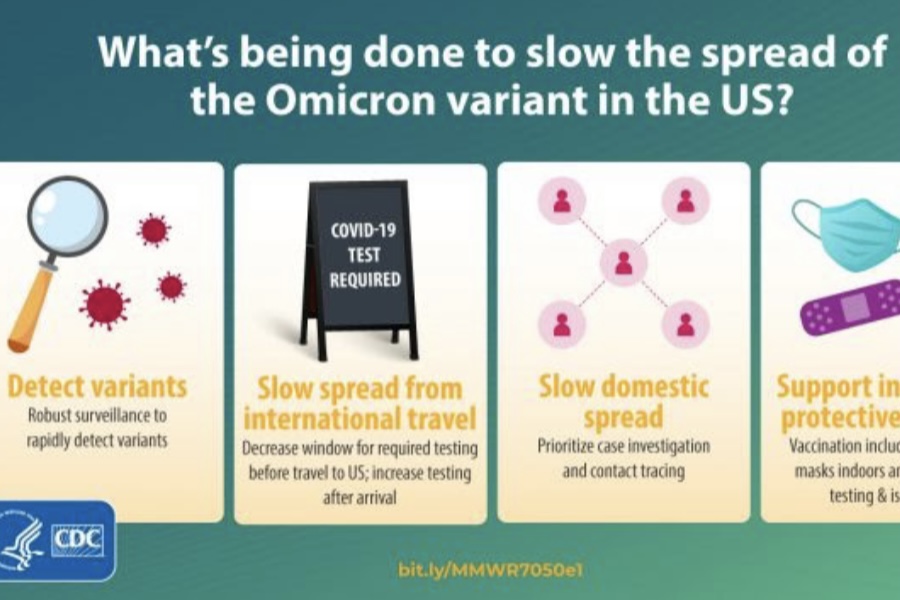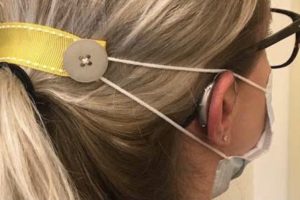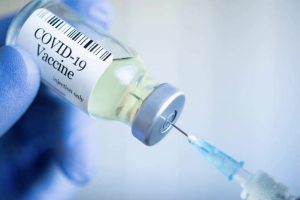New COVID-19 strand called the Omicron variant hits the U.S.
January 12, 2022
The COVID-19 virus has manipulated and changed into thousands of different variants in the years following the outbreak. The Omicron variant is the newest and spiked during the holiday break. The emergence of this variant was first identified on Nov. 24, 2021 after specimens were collected from someone in Botswana, South Africa.
Rapid testing and the Polymerase Chain Reaction (PCR) test can detect the Omicron variant, but the test doesn’t indicate which variant the tester is positive for and it could be less sensitive to identifying Omicron. The vaccinated are also victims of this strain but have weakened and less long-lasting symptoms.
The variants do differ in symptoms slightly from each other, but are still very similar. Omicron symptoms consist of a scratchy throat, nasal congestion, muscle aches and dry cough. Loss of the sense of taste and smell has not yet been noted as a symptom.
“It’s too early to say there’s any significant difference between the Omicron variant and previous versions,” University of Pennsylvania professor Ashley Z. Ritter stated in a New York Times Article.
Like other COVID-19 variants, Omicron could lead to long-term symptoms such as crushing fatigue and irregular heartbeats lasting for months after initial infection. Though lingering symptoms aren’t too worrisome for most people, according to Ritter.
Exposure to any COVID-19 variant will help protect against other variants including Omicron because of the antibodies received. Masks, social distancing and washing hands are still heavily recommended by the Center for Disease Control (CDC) to prevent the infection of any COVID-19 variant. In an article by the CDC, they say people infected with the Omicron strain can spread the virus to others, even those who are vaccinated.
The Omicron variant is less deadly than other variants but it is exceedingly more contagious. The hospital admittance for people with the Omicron strain is less than half than the Delta variant. Omicron risks ultimately depend on age, vaccination status and overall health.













